- Home
- Ralph Ellison
Flying Home and Other Stories Page 4
Flying Home and Other Stories Read online
Page 4
They threw on more gas, and it made the Square bright like it gets when the lights are turned on or when the sun is setting red. All the wagons and cars were standing around the curbs. Not like Saturday though—the niggers weren’t there. Not a single nigger was there except this Bacote nigger and they dragged him there tied to the back of Jed Wilson’s truck. On Saturday there’s as many niggers as white folks.
Everybody was yelling crazy ’cause they were about to set fire to the nigger, and I got to the rear of the circle and looked around the Square to try to count the cars. The shadows of the folks was flickering on the trees in the middle of the Square. I saw some birds that the noise had woke up flying through the trees. I guess maybe they thought it was morning. The ice had started the cobblestones in the street to shine where the rain was falling and freezing. I counted forty cars before I lost count. I knew folks must have been there from Phenix City by all the cars mixed in with the wagons.
God, it was a hell of a night. It was some night all right. When the noise died down I heard the nigger’s voice from where I stood in the back, so I pushed my way up front. The nigger was bleeding from his nose and ears, and I could see him all red where the dark blood was running down his black skin. He kept lifting first one foot and then the other, like a chicken on a hot stove. I looked down to the platform they had him on, and they had pushed a ring of fire up close to his feet. It must have been hot to him with the flames almost touching his big black toes. Somebody yelled for the nigger to say his prayers, but the nigger wasn’t saying anything now. He just kinda moaned with his eyes shut and kept moving up and down on his feet, first one foot and then the other.
I watched the flames burning the logs up closer and closer to the nigger’s feet. They were burning good now, and the rain had stopped and the wind was rising, making the flames flare higher. I looked, and there must have been thirty-five women in the crowd, and I could hear their voices clear and shrill mixed in with those of the men. Then it happened. I heard the noise about the same time everyone else did. It was like the roar of a cyclone blowing up from the gulf, and everyone was looking up into the air to see what it was. Some of the faces looked surprised and scaired, all but the nigger. He didn’t even hear the noise. He didn’t even look up. Then the roar came closer, right above our heads and the wind was blowing higher and higher and the sound seemed to be going in circles.
Then I saw her. Through the clouds and fog I could see a red and green light on her wings. I could see them just for a second; then she rose up into the low clouds. I looked out for the beacon over the tops of the buildings in the direction of the airfield that’s forty miles away, and it wasn’t circling around. You usually could see it sweeping around the sky at night, but it wasn’t there. Then, there she was again, like a big bird lost in the fog. I looked for the red and green lights, and they weren’t there anymore. She was flying even closer to the tops of the buildings than before. The wind was blowing harder, and leaves started flying about, making funny shadows on the ground, and tree limbs were cracking and falling.
It was a storm all right. The pilot must have thought he was over the landing field. Maybe he thought the fire in the Square was put there for him to land by. Gosh, but it scaired the folks. I was scaired too. They started yelling: “He’s going to land. He’s going to land.” And: “He’s going to fall.” A few started for their cars and wagons. I could hear the wagons creaking and chains jangling and cars spitting and missing as they started the engines up. Off to my right, a horse started pitching and striking his hooves against a car.
I didn’t know what to do. I wanted to run, and I wanted to stay and see what was going to happen. The plane was close as hell. The pilot must have been trying to see where he was at, and her motors were drowning out all the sounds. I could even feel the vibration, and my hair felt like it was standing up under my hat. I happened to look over at the statue of the general standing with one leg before the other and leaning back on a sword, and I was fixing to run over and climb between his legs and sit there and watch when the roar stopped some, and I looked up and she was gliding just over the top of the trees in the middle of the Square.
Her motors stopped altogether and I could hear the sound of branches cracking and snapping off below her landing gear. I could see her plain now, all silver and shining in the light of the fire with T.W.A. in black letters under her wings. She was sailing smoothly out of the Square when she hit the high power lines that follow the Birmingham highway through the town. It made a loud crash. It sounded like the wind blowing the door of a tin barn shut. She only hit with her landing gear, but I could see the sparks flying, and the wires knocked loose from the poles were spitting blue sparks and whipping around like a bunch of snakes and leaving circles of blue sparks in the darkness.
The plane had knocked five or six wires loose, and they were dangling and swinging, and every time they touched they threw off more sparks. The wind was making them swing, and when I got over there, there was a crackling and spitting screen of blue haze across the highway. I lost my hat running over, but I didn’t stop to look for it. I was among the first and I could hear the others pounding behind me across the grass of the Square. They were yelling to beat all hell, and they came up fast, pushing and shoving, and someone got pushed against a swinging wire. It made a sound like when a blacksmith drops a red hot horseshoe into a barrel of water, and the steam comes up. I could smell the flesh burning. The first time I’d ever smelled it. I got up close and it was a woman. It must have killed her right off. She was lying in a puddle stiff as a board, with pieces of glass insulators that the plane had knocked off the poles lying all around her. Her white dress was torn, and I saw one of her tits hanging out in the water and her thighs. Some woman screamed and fainted and almost fell on a wire, but a man caught her. The sheriff and his men were yelling and driving folks back with guns shining in their hands, and everything was lit up blue by the sparks. The shock had turned the woman almost as black as the nigger. I was trying to see if she wasn’t blue too, or if it was just the sparks, and the sheriff drove me away. As I backed off trying to see, I heard the motors of the plane start up again somewhere off to the right in the clouds.
The clouds were moving fast in the wind and the wind was blowing the smell of something burning over to me. I turned around, and the crowd was headed back to the nigger. I could see him standing there in the middle of the flames. The wind was making the flames brighter every minute. The crowd was running. I ran too. I ran back across the grass with the crowd. It wasn’t so large now that so many had gone when the plane came. I tripped and fell over the limb of a tree lying in the grass and bit my lip. It ain’t well yet I bit it so bad. I could taste the blood in my mouth as I ran over. I guess that’s what made me sick. When I got there, the fire had caught the nigger’s pants, and the folks were standing around watching, but not too close on account of the wind blowing the flames. Somebody hollered, “Well, nigger, it ain’t so cold now, is it? You don’t need to put your hands in your pockets now.” And the nigger looked up with his great white eyes looking like they was ’bout to pop out of his head, and I had enough. I didn’t want to see anymore. I wanted to run somewhere and puke, but I stayed. I stayed right there in the front of the crowd and looked.
The nigger tried to say something I couldn’t hear for the roar of the wind in the fire, and I strained my ears. Jed Wilson hollered, “What you say there, nigger?” And it came back through the flames in his nigger voice: “Will one a you gentlemen please cut my throat?” he said. “Will somebody please cut my throat like a Christian?” And Jed hollered back, “Sorry, but ain’t no Christians around tonight. Ain’t no Jew-boys neither. We’re just one hundred percent Americans.”
Then the nigger was silent. Folks started laughing at Jed. Jed’s right popular with the folks, and next year, my uncle says, they plan to run him for sheriff. The heat was too much for me, and the smoke was making my eyes to smart. I was trying to back away when Jed reached down and br
ought up a can of gasoline and threw it in the fire on the nigger. I could see the flames catching the gas in a puff as it went in in a silver sheet and some of it reached the nigger, making spurts of blue fire all over his chest.
Well, that nigger was tough. I have to give it to that nigger; he was really tough. He had started to burn like a house afire and was making the smoke smell like burning hides. The fire was up around his head, and the smoke was so thick and black we couldn’t see him. And him not moving—we thought he was dead. Then he started out. The fire had burned the ropes they had tied him with, and he started jumping and kicking about like he was blind, and you could smell his skin burning. He kicked so hard that the platform, which was burning too, fell in, and he rolled out of the fire at my feet. I jumped back so he wouldn’t get on me. I’ll never forget it. Every time I eat barbeque I’ll remember that nigger. His back was just like a barbecued hog. I could see the prints of his ribs where they start around from his backbone and curve down and around. It was a sight to see, that nigger’s back. He was right at my feet, and somebody behind pushed me and almost made me step on him, and he was still burning.
I didn’t step on him though, and Jed and somebody else pushed him back into the burning planks and logs and poured on more gas. I wanted to leave, but the folks were yelling and I couldn’t move except to look around and see the statue. A branch the wind had broken was resting on his hat. I tried to push out and get away because my guts were gone, and all I got was spit and hot breath in my face from the woman and two men standing directly behind me. So I had to turn back around. The nigger rolled out of the fire again. He wouldn’t stay put. It was on the other side this time. I couldn’t see him very well through the flames and smoke. They got some tree limbs and held him there this time and he stayed there till he was ashes. I guess he stayed there. I know he burned to ashes because I saw Jed a week later, and he laughed and showed me some white finger bones still held together with little pieces of the nigger’s skin. Anyway, I left when somebody moved around to see the nigger. I pushed my way through the crowd, and a woman in the rear scratched my face as she yelled and fought to get up close.
I ran across the Square to the other side, where the sheriff and his deputies were guarding the wires that were still spitting and making a blue fog. My heart was pounding like I had been running a long ways, and I bent over and let my insides go. Everything came up and spilled in a big gush over the ground. I was sick, and tired, and weak, and cold. The wind was still high, and large drops of rain were beginning to fall. I headed down the street to my uncle’s place past a store where the wind had broken a window, and glass lay over the sidewalk. I kicked it as I went by. I remember somebody’s fool rooster crowing like it was morning in all that wind.
The next day I was too weak to go out, and my uncle kidded me and called me “the gutless wonder from Cincinnati.” I didn’t mind. He said you get used to it in time. He couldn’t go out hisself. There was too much wind and rain. I got up and looked out of the window, and the rain was pouring down and dead sparrows and limbs of trees were scattered all over the yard. There had been a cyclone all right. It swept a path right through the county, and we were lucky we didn’t get the full force of it.
It blew for three days steady, and put the town in a hell of a shape. The wind blew sparks and set fire to the white-and-green-trimmed house on Jackson Avenue that had the big concrete lions in the yard and burned it down to the ground. They had to kill another nigger who tried to run out of the county after they burned this Bacote nigger. My Uncle Ed said they always have to kill niggers in pairs to keep the other niggers in place. I don’t know though, the folks seem a little skittish of the niggers. They all came back, but they act pretty sullen. They look mean as hell when you pass them down at the store. The other day I was down to Brinkley’s store, and a white cropper said it didn’t do no good to kill the niggers ’cause things don’t get no better. He looked hungry as hell. Most of the croppers look hungry. You’d be surprised how hungry white folks can look. Somebody said that he’d better shut his damn mouth, and he shut up. But from the look on his face he won’t stay shut long. He went out of the store muttering to himself and spit a big chew of tobacco right down on Brinkley’s floor. Brinkley said he was sore ’cause he wouldn’t let him have credit. Anyway, it didn’t seem to help things. First it was the nigger and the storm, then the plane, then the woman and the wires, and now I hear the airplane line is investigating to find who set the fire that almost wrecked their plane. All that in one night, and all of it but the storm over one nigger. It was some night all right. It was some party too. I was right there, see. I was right there watching it all. It was my first party and my last. God, but that nigger was tough. That Bacote nigger was some nigger!
Boy on a Train
From The New Yorker, April 29 & May 6, 1996
The train gave a long, shrill, lonely whistle, and seemed to gain speed as it rushed downgrade between two hills covered with trees. The trees were covered with deep-red, brown, and yellow leaves. The leaves fell on the side of the hill and scattered down to the gray rocks along the opposite tracks. When the engine blew off steam, the little boys could see the white cloud scatter the colored leaves against the side of the hill. The engine hissed, and the leaves danced in the steam like leaves in a white wind.
“See, Lewis, Jack Frost made the pretty leaves. Jack Frost paints the leaves all the pretty colors. See, Lewis: brown, and purple, and orange, and yellow.”
The little boy pointed and paused after naming each color, his finger bent against the glass of the train window. The baby repeated the colors after him, looking intently for Jack Frost.
It was hot in the train, and the car was too close to the engine, making it impossible to open the window. More than once, cinders found a way into the car and flew into the baby’s eyes. The woman raised her head from her book from time to time to watch the little boys. The car was filthy, and part of it was used for baggage. Up front, the pine shipping box of a casket stood in a corner. Wonder what poor soul that is in there, the woman thought.
Bags and trunks covered the floor up front, and now and then the butcher came in to pick up candy, or fruit or magazines, to sell back in the white cars. He would come in and pick up a basket with candy, go out, come back; pick up a basket of fruit, go out; come back, pick up magazines, and on till everything had been carried out; then he would start all over again.
He was a big, fat white man with a red face, and the little boy hoped he would give them a piece of candy; after all, he had so much, and Mama didn’t have any nickels to give them. But he never did.
The mother read intently, holding a page in her hand as she scanned, then turned it slowly. They were the only passengers in the section of seats reserved for colored. She turned her head, looking back toward the door leading to the other car; it was time for the butcher to return. Her brow wrinkled annoyedly. The butcher had tried to touch her breasts when she and the boys first came into the car, and she had spat in his face and told him to keep his dirty hands where they belonged. The butcher had turned red and gone hurriedly out of the car, his baskets swinging violently on his arms. She hated him. Why couldn’t a Negro woman travel with her two boys without being molested?
The train was past the hills now, and into fields that were divided by crooked wooden fences and that spread rolling and brown with stacks of corn as far as the blue horizon fringed with trees. The fences reminded the boy of the crooked man who walked a crooked mile.
Red birds darted swiftly past the car, ducking down into the field, then shooting up again when you looked back to see the telephone poles and fields turning, and sliding fast away from the train. The boys were having a good time of it. It was their first trip. The countryside was bright gold with Indian summer. Way across a field, a boy was leading a cow by a rope and a dog was barking at the cow’s feet. It was a nice dog, the boy on the train thought, a collie. Yes, that was the kind of dog it was—a collie.
A freight was passing, going in the direction of Oklahoma City, passing so swiftly that its orange-and-red cars seemed a streak of watercolor with gray spaces punched through. The boy felt funny whenever he thought of Oklahoma City, like he wanted to cry. Perhaps they would never go back. He wondered what Frank and R.C. and Petey were doing now. Picking peaches for Mr. Stewart? A lump rose in his throat. Too bad they had to leave just when Mr. Stewart had promised them half of all the peaches they could pick. He sighed. The train whistle sounded very sad and lonesome.
Well, now they were going to McAlester, where Mama would have a nice job and enough money to pay the bills. Gee, Mama must have been a good worker for Mr. Balinger to send all the way to Oklahoma City for her to come work for him. Mama was happy to go, and he was glad for Mama to be happy; she worked so hard now that Daddy was gone. He closed his eyes tight, trying to see the picture of Daddy. He must never forget how Daddy looked. He would look like that himself when he grew up: tall and kind and always joking and reading books.… Well, just wait; when he got big and carried Mama and Lewis back to Oklahoma City everybody would see how well he took care of Mama, and she would say, “See, these are my two boys,” and would be very proud. And everybody would say, “See, aren’t Mrs. Weaver’s boys two fine men?” That was the way it would be.
The thought made him lose some of the lump that came into his throat when he thought of never, never going back, and he turned to see who it was coming through the door.

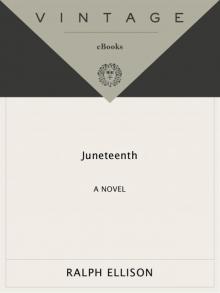 Juneteenth
Juneteenth Invisible Man
Invisible Man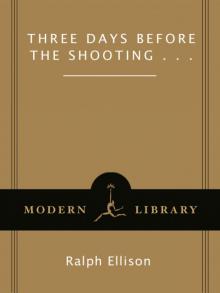 Three Days Before the Shooting . . .
Three Days Before the Shooting . . . Flying Home and Other Stories
Flying Home and Other Stories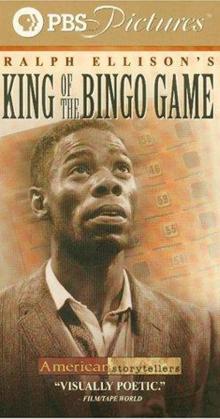 King of the Bingo Game
King of the Bingo Game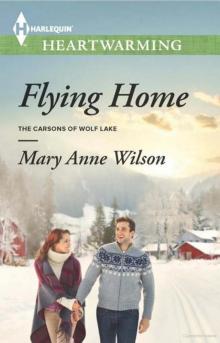 Flying Home
Flying Home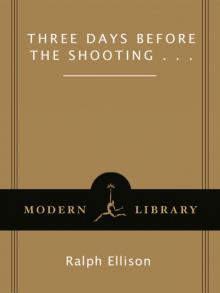 Three Days Before the Shooting ...
Three Days Before the Shooting ...